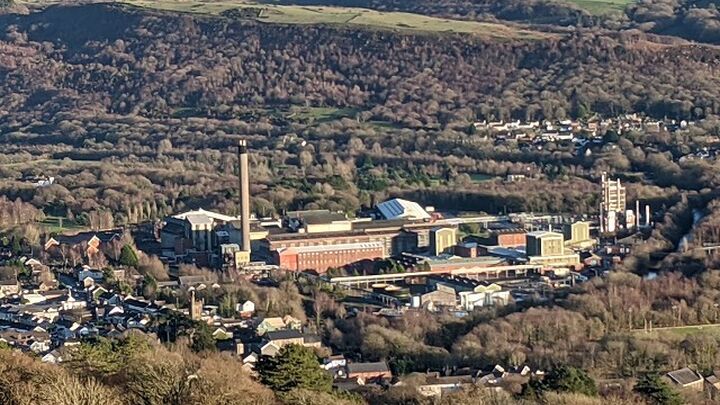Maybe I shouldn’t admit this plainly, but the idea of Community Energy was something fairly unfamiliar when I started my role as a Communications and Membership Officer here at Community Energy Wales.
These last few months have been an education then, and I’m thankful for that on a personal level. Being involved with this sector and understanding more about it has kept me curious during lockdowns and Covid, and though I’ve not been able to meet the hardworking people that are its lifeblood, the determination that’s to be found at our grassroots is inspiring.
Often, the thinking and discussion around the climate emergency is presented in a way that is hard for us ordinary people to grasp – talk of tonnes of CO2, or metres of sea level. Trying to imagine and convert these figures into our reality is a challenge.
But the signs surround us constantly; in the awful fires of Australia and California, or closer to us in Wales with the destructive flooding that Rhondda’s communities saw at the start of last year. It’s an uncomfortable thought that these events are also part of the ‘new normal’ that we’ve come to know this last year. Maybe more than anything, the fact and effect of those floods reveal the chronic underfunding that our post-industrial communities have seen for a whole generation.
There’s some irony to it, as these are the communities that powered once the heavy industry that’s so detrimental to our environment. We must be hesitant to place blame on these communities however, and the ordinary people that live in them. Their lands and communities were under the hands of masters that were distant both geographically and philosophically. This is my background after all, Craig-cefn-parc, the place of my upbringing, is a village that grew around coal mines. Gwilym Herber, poet, former miner and a neighbour to me as a child wrote of the Mond factory in nearby Clydach:
‘Mond yw’r lle sy’n mynd â’r llog / O Glydach i’r goludog’
Loosely translated to
‘Mond, the place that takes the wealth / From Clydach to those with plenty.’
From speaking to the various members of Community Energy Wales, it’s clear that this is a story that we share. In Wales, we are more than aware of the legacy of heavy industry and of the impulses of corporations and big capitalism. Nothing came in the place of the old industries after the closure of slate and coal mines and factories, and our communities are still fighting for their dignity and rights. There is another energy revolution happening, however. As we move ever closer to a zero-carbon society, the importance of renewable energy and ordinary people’s relationship to it will evolve and mature. We must ensure that the same doesn’t happen this time. We must ensure that our communities retain the ownership of their local resources, and that the benefits are shared by all
Of course, we have a history in Wales of collaboration and forming co-operatives to keep profits within communities. This is the country of miners’ institutes and Robert Owen after all. Many of our Community Energy Wales members have been pioneers in rooting energy in our communities. Energy and collaboration are just things that we do in Wales. We’d do well to remember this as the task of fighting against climate change appears to be overwhelming.
There are many ways to take part in this revolution. You can subscribe to the RhanNi newsletter, to hear more about the opportunities to invest in the various projects in Wales that work in the community energy sector. You can start thinking about a community energy project in your area and contact us to see if it’s possible to develop.
The most important thing that I’ve learned from my time working at Community Energy Wales is that we don’t need to wait for the next change in energy to happen to us, for us to endure it passively and without action. We as Welsh people can take part in it, and lead.

